Raising Human Livestock
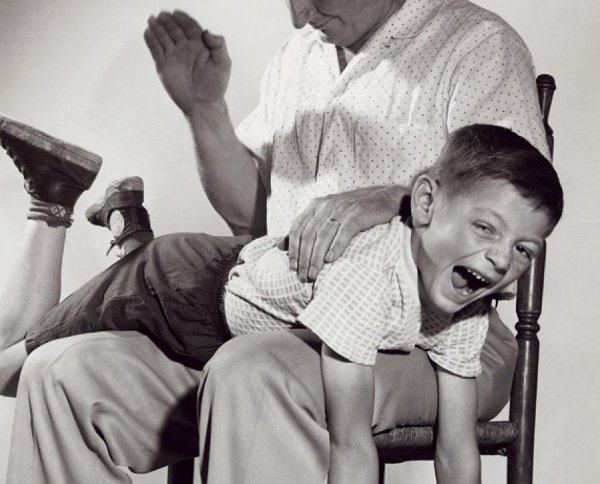
There are a growing number of people who object to “disciplining” children by hitting them. A common rejoinder to that is, “I was spanked and I turned out okay.” That argument is bogus for several reasons: 1) The fact that you survived something happening doesn’t mean it was good that it happened. (“I got hit by a bus when I was young, and I turned out okay. Therefore, I’m going to push my children in front of busses.”) 2) The morality of an action is not determined by whether it permanently harms someone. (“It’s okay for the other kids to steal your stuff, because you’ll turn out okay anyway.”) 3) Others might not accept on faith your alleged “okayness.”
But I want to address how spanking impacts the bigger picture of society. Toward that end, I will use an analogy:

Once upon a time there were two families at a town picnic. Each family had several children, and the children were all well behaved. They weren’t overly rambunctious or loud, and were considerate of others—children and adults alike. As far as a random observer would know, they were just two families with “good kids.”
However, that end result—that externally “proper behavior”—was achieved by the two sets of parents in very different ways. One family taught it via authoritarian discipline. Their children knew that, if they didn’t behave the way they were told to behave, later they would be severely punished. The other family, in contrast, taught their children to respect others—respect their wishes, their feelings, and their property.
The two parenting approaches could be summed up as, “Do as I say, or else!” versus “Treat others the way you would want to be treated.” The results, at least apparently, were very similar: both sets of children were well-behaved, polite, and apparently considerate at the picnic.
HOWEVER…
That picnic occurred in 1920 in Germany. Twenty years later, the behavior of the two sets of (former) children had become very different. The children from the first family had been trained, quite intentionally, to make their decisions based upon the rewards or punishments they would receive from “authority.” They had little if any practice or experience at running their own lives, or using their own consciences and judgment to decide what to do.
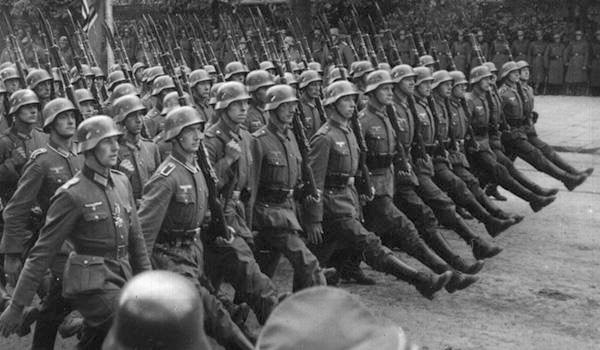
As such, they fit in quite well when they joined the Nazi army. It was a familiar type of arrangement that they understood well. The only thing they had to do was obey orders, and they would be rewarded. They knew they wouldn’t have to make their own moral decisions—and in fact were strongly discouraged from doing so. The main “right and wrong” which their parents had taught them was that obedience is good and disobedience is bad. So when the children grew up and fell in line under a new “authority,” they did as they were told without a second thought. They had been taught that it was not their place to question the righteousness or legitimacy of orders. They were taught to obey without question. So that’s what they did.
And they died, among countless others, fighting in Stalingrad—fighting against Russian children who had also been raised the same way. Two sets of well-trained subjects, faithfully doing as they were told, loyal and obedient to the gruesome end. Because that is how they were raised.
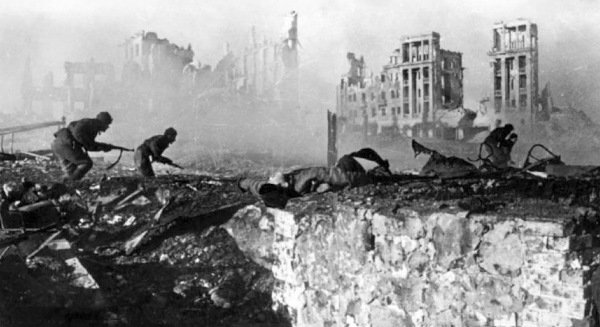
Not surprisingly, having been raised to respect the self-ownership of others, the other children’ lives took a very different route. Having early on developed their sense of empathy and justice, accepting the concepts of self-ownership and non-aggression, they spent their lives advocating peaceful, voluntary interaction, and opposing and resisting aggression, “official” or otherwise. They didn’t murder anyone. They didn’t die pointlessly in politicians’ war games.
THE END
The fact that both sets of children behaved well at the picnic means nothing. If you happen to command your children to behave properly, after having used reward and punishment to train them to obey you, you still didn’t teach them to be good; you taught them to be obedient. If they didn’t actually acquire a sound moral code—which coercively controlling them does not give them—then once you are not there to punish them for what they do, what would their motivation be to behave “properly”? If you taught them to behave a certain way in order to avoid punishment, then the moment there is no longer a threat of punishment, why would they keep behaving that way? And if at some point they find themselves under the control of some different supposed “authority,” and it commands them to do bad things, what do you think they will do?
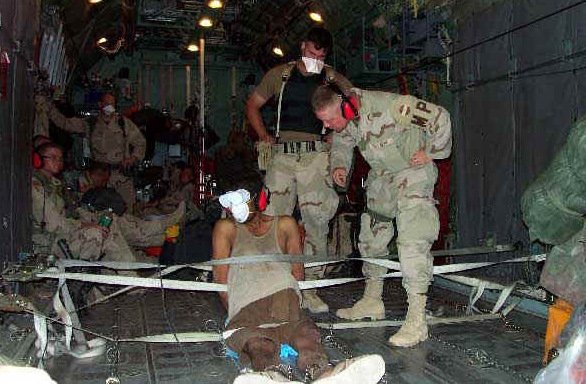
What’s the lesson here? Well, if you want your children growing up to be perfect subjects of whatever authoritarian regime happens to be in power, to blindly obey commands, and to have their decision-making processes governed entirely by reward and punishment, then raise them using authoritarian methods, spank them, punish them when they don’t follow your commands, and teach them unquestioning subservience and blind obedience.
And if they later join the military, blindly follow orders to charge into battle, and end up murdering strangers, or getting killed themselves, that will be the ultimate indicator that you have achieved your goal: training a human being to forego his own conscience, free will and individual judgment, in favor of blind obedience to an external “authority.” Congratulations.

If that seems too harsh, let me ask you this: have you ever seen a war between two sets of people who were raised to think for themselves, to judge right from wrong for themselves, to accept personal responsibility for their own decisions and actions, and to never hide behind the excuse of “I was just doing what I was told”? No, you haven’t. And you never will.
So tell me, which is better? To allow people to continue to be comfortable with their own authoritarian assumptions and “traditional” methods of parenting, which train most people to be unthinking drones, and feeds perpetual injustice and war? Or to offend, shock, and guilt trip people—who have merely passed on the authoritarian indoctrination they were taught—into possibly changing how society thinks and functions?

Back to the point this article started on, if you were spanked as a child, and you grew up to become a cop, or a soldier, or a tax collector or other government bureaucrat, or even just a proud “law-abiding taxpayer,” then no, you didn’t turn out okay. You turned out to be human livestock serving a malicious, parasitic, violent ruling class. And the worst thing you can do is pass that on to the next generation. If you teach your children to respect and obey “authority,” you are training them to be amoral, unthinking, compliant subjects of whatever thug, gang, crook, tyrant or ruling class they happen to latch onto as their new “authority,” after you no longer control them. You’re not helping your children, you’re not helping yourself, you’re not helping humanity. Stop it.
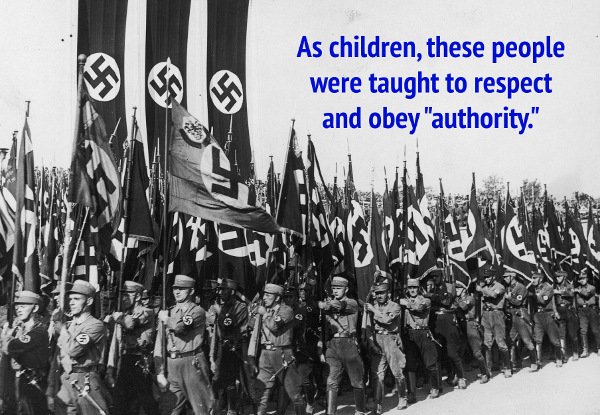
Another reason: Whether or not a person 'turned out okay' is less relevant than: Would the person have been better off (in whatever respect) if they hadn't been spanked.
I like many in my age demographic was spanked as a child. I could tell though that my father struggled with doing it, he really didn't want to and it was obvious he took no pleasure in it. I think he just didn't know what else to do as far as disciplining.
I don't know how it affected me personally, except I don't spank my own kids. I just can't do it. Perhaps I'm like my father after all, but now society has provided other methods for parents to choose from.
You give me a lot to think about. I want my young boys to questiin all authority but i dont want them running around like gangsters. I appreciate this post a lot. Thank you.
Living here in the south, I get strange looks when I say I don't spank. I try to tell them about teaching children to negotiate and compromise with adults, because once they are adults they will have to negotiate and compromise. Most of the Fudds around me, all tell me how sparing the rod isn't going to help them grow up "right", whatever that means.
I feel the best way to change the world is with a 2 step approach:
#1 - Change yourself. Look closely. Ask the hard questions. Be brutally honest, respectful, and observant.
#2 - Don't hide the above process from your children. Let them see you grow and if changing your disciplinary methods is a part of that, so much the better.
I questioned authority from a young age BECAUSE of the beatings lol
Violence is only necessary out of survival. Otherwise - USE YOUR WORDS, CHILDREN.
@larkenrose Deep insight there, man. I was spanked as a kid, and I still turned out to be an anarchist. Lol. That said, it's a process I'm still in the middle of and learning more each day, thanks to you and others like you. I wish I had found posts like these when my daughter was still small.
I'm guilty of delivering spankings to her. I didn't know any better, and it wasn't often. It always made me feel horrible. She's now a teenager, and at times tries to hit/ kick her mother, because she's bigger than her mother. We try to talk to her and resolve things that way, but it usually doesn't work. She's obviously too old for this behavior at 17, but we just don't quite know what to do to help her. Parents need more resources to know how to deal with their children when those children act out violently. Obviously, as an anarchist, I refuse to involve the police. If anyone has suggestions, I'd love to hear them. There has to be a way we can teach her, even when she's being violent, to learn better ways to cope. I'm sure we're not too late.
I agree.
I was hit as a child - I thought it was normal. It wasn't until I began interacting with other people, out of the circle I'd grown up in, that I realised it was not normal.
The only thing being beaten taught me was how to take a beating. That is not a lesson I wished my own children to learn, especially NOT at my hand.
Nice post, disturbing - for the right reasons.
Hey Larken, Still think the "Nazis" were evil?